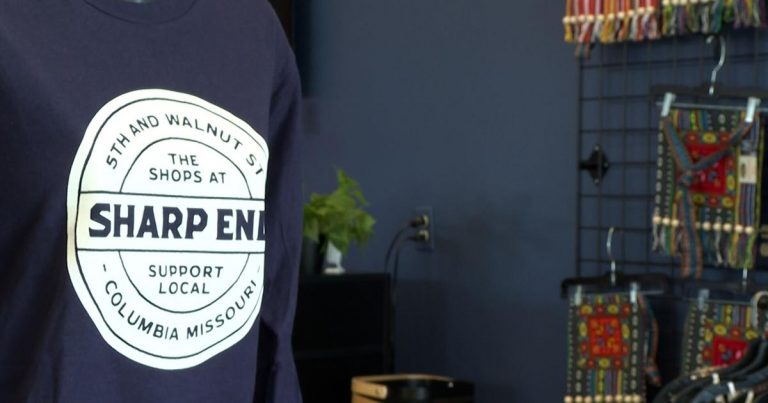COLUMBIA — Candace Hulsizer doesn’t consider herself an entrepreneur.
“Really, I’m an educator,” she said.
With a background in teaching, she’s grown into her enterprising role through a small corner of bookshelves in Columbia’s historic Sharp End.
“I thought that having a bookstore, especially one that focuses on Black literature, would be a perfect fit,” she said.
Hulsizer is the owner of Black Tea Bookshop, one of the many small businesses that call the Shops at Sharp End home.
“A lot of it is an effort to pay homage to the people who were here and the places that were here before,” she said. “And that’s what I’m doing with Black Tea Bookshop.”
What was once a bustling neighborhood filled with Black businesses is now represented in the Shops at Sharp End. It’s a hub aimed at helping establish minority-owned businesses in the community.
“It’s basically the spirit of the Sharp End,” said Tiowana Warrick, the program manager for the Shops at Sharp End.
Giving Black authors a voice
Hulsizer showcases this spirit through curated literature picks, ranging from cookbooks to memoirs to children’s books, primarily written by Black authors.
“This is also one of my favorites,” Hulsizer said, as she showed the illustrations inside a children’s book about Black history. “There’s some poetry over here, some fiction, some nonfiction.”
Learning about different experiences through literature is one way Hulsizer believes more people can understand Black history.
“Books are stories, and stories are about people,” she said. “You can learn just so much through books.”
The stories of the Sharp End
In its heyday, the Sharp End was where Black businesses flourished in a very segregated Columbia.
“The restaurants, the bars — those kinds of service industries thrived,” said Gary Kremer, the executive director of the State Historical Society of Missouri.
In the 1960s, everything changed. Racial integration and urban renewal deeply affected communities like the Sharp End across the state.
“(The Sharp End) was declared blighted by the powers that be, which then allowed the governing authorities to tear buildings down in the name of progress,” Kremer said.
As the Sharp End began to dissolve, so did the businesses within it.
“The world that was lost was this world of Black security in a Black community with Black businesses,” Kremer said. “Sixty years later, it’s still a sore point.”
Using the past to shape the future
The opportunity to take a page from the past and write a new future is something Hulsizer said she doesn’t take for granted.
“I am my ancestors’ dream,” she said. “I don’t even know that my people could even imagine what I’m able to do, and so to be able to be a part of that is amazing.”
However, Kremer said society is still far from solving the ongoing struggle of racial equity.
“I thought that by the time I reached the age I am now that American and Missouri’s racial problems would be solved,” he said. “I was naive.”
The Sharp End will likely never be what it once was, but there are local businesses keeping it alive.
“People of color — they need to be able to see themselves represented positively doing these things,” Hulsizer said. “This is wanted and it’s needed.”
In order to keep sustaining the spirit of the historic district, Warrick’s request from the community is simple.
“More support,” she said. “More support.”
And something as basic as a book is what Hulsizer said can help the community turn the page to a better future.
“Books help with empathy, and we need so much of that right now,” she said.





